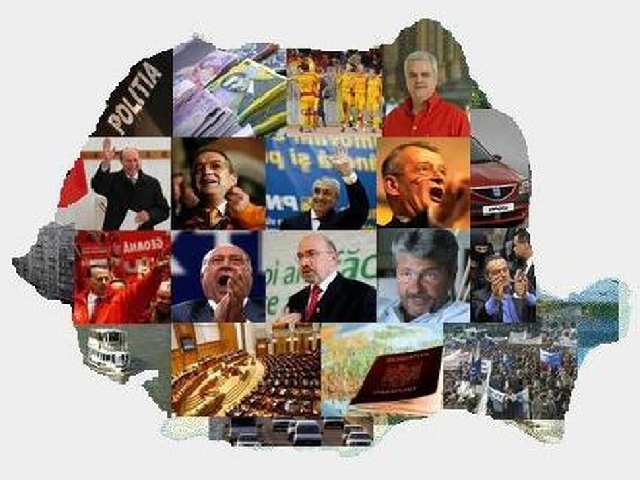The Week in Review April 11-15
Click here for a roundup of the week's main stories.

România Internațional, 16.04.2016, 14:00
Romania will have new national security laws
Talks on the reform of national security legislation were absolutely necessary, as it was obvious, on more than one occasion, that some of them were obsolete, inadequate and difficult to implement. With that in mind, President Klaus Ioannis has held consultations with parliamentary parties on the national security legislation. The conclusion of the meeting has been that these laws need updating. President Iohannis has explained that there will be two packages of laws:
“A first package, made up of three bills, is being discussed in government and is in an advanced stage. One bill refers to ways to improve the anti-terror law, the second bill clarifies the situation of pre-pay cards and the third one refers to IT security. During the talks with the parties, we reached the conclusion that these bills can be finalised by the time parliament goes into recess. The second package contains equally important bills, but they are not at such an advanced stage”.
Klaus Iohannis has also said that Romania can have stable national security legislation if it is endorsed by the majority of politicians and backed by civil society. In another development, Romanian MPs have recently endorsed the controversial debt discharge bill. The document has been amended after president Klaus Iohannis sent it back to Parliament. The law applies to natural persons who have taken out mortgage loans of up to 250,000 euros to buy or build a house. Under the law, people who are unable to pay back the loans can cede the house or the mortgaged goods to the bank that granted the loans. After the vote in the Chamber of Deputies, which is the decision-making body in this case, the bill was sent to the President to be signed into law. The president now no longer has the right to send it back to Parliament, but the law can be appealed at the Constitutional Court.
Romania’s Labour Minister steps down
Ana Costea, a labour minister in the government headed by Dacian Ciolos, handed in her resignation on Thursday and the prime minister accepted it. Her resignation comes after trade unions in the public sector voiced their discontent with a planned emergency ordinance on state sector salaries, a document Ana Costea eventually refused to support. Dumitru Costin, the president of the National Trade Union Bloc, has said:
“I had high expectations from the labour minister at first but then I started to realise that she was being gradually stripped of some of her initial responsibilities such as drafting the salary law for the public sector. I have found out that, two months ago, this task was taken over by the Government’s General Secretariat. Also, when I asked minister Costea to withdraw the draft law, she said she would resign unless the law was withdrawn. To me it was more than obvious that she had not drawn up this law herself but that she had been obliged to take responsibility for it. She could have done many good things as a minister, but she just wasn’t allowed to.”
In the meantime, prime minister Dacian Ciolos said talks on state sector salaries would continue next week to work out a solution that is acceptable for state employees and feasible from a budgetary and legal point of view.
The National Liberal Party and the local elections
Marian Munteanu is the new candidate of the Liberal Party in the race for Bucharest mayor to replace Ludovic Orban, who dropped out of the race following a corruption scandal. The co-president of the Liberal Party, Alina Gorghiu explained the party’s new choice:
“Marian Munteanu is a representative of civil society and a symbol of the 1990s, one of the leaders of the student movement at the time and also a symbol of the anticommunist movement, a man who can win the election battle for the National Liberal Party in Bucharest.”
A number of civic and human rights organisations called on the Liberal Party to withdraw its support for Marian Munteanu on account of his fascist leanings. Other candidates for Bucharest mayor include the Social Democrat Gabriela Firea, Nicusor Dan from the Save Bucharest Union and the independent Ciprian Ciucu, who is supported by the M10 party. Candidates can register by the 26th of April. The local elections are scheduled for the 5th of June.
Two Romanian films in the Main Competition at Cannes Festival
A public subscription was launched in Bucharest on Monday to raise money for the purchase of Constantin Brancusi’s work The Wisdom of the Earth. Culture minister Vlad Alexandrescu explains:
“We have opened the accounts in euros, dollars and, of course, in lei at the State Treasury and six other commercial banks who agreed to work with us without charging a commission. The accounts are already available on the website of the culture ministry and a special website cuminteniapamantului.ro, which will be used in the communication campaign we will start soon.”
The state will cover 5 of the 11 million euros requested by the owners of the sculpture. The remaining 6 will be raised through public collection by the 30th of October.
Cannes Film Festival
Five Romanian productions have been selected for the 69th Canned Film Festival held between 11th and 22nd of May. Cristian Mungiu’s Bacalaureat and Cristi Puiu’s Sierra Nevada will run in the Main Competition, while Bogdan Mirica’s Dogs will be screened in the Un Certain Regard programme. Other Romanian titles in Cannes are 4:15 Pm. The End of the World by Catalin Rotaru and Gabi Virginia Sarga in the main competition for short films, and Alexandru Badea’s All Rivers Run to the Sea in the Cinefondation programme.
(Translated by E. Enache and C. Mateescu)





























